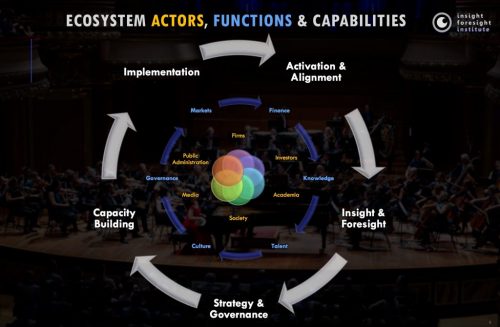As part of the consortium led by the Austrian Institute of Technology, IFI supports the European Commission by providing “foresight on demand” services in science, technology, research and innovation policy.

DG Research and Innovation has set-up a “Foresight-On-Demand” (FOD) mechanism to respond to the demand for quick inputs to policy-making, drawn on the best available foresight knowledge. FOD is aimed at offering Commission services with timely and effective support related to crisis situations, emerging risks, and policy challenges. The FOD services will include scanning and synthesis of foresight literature and data sources including horizon scanning, rapid foresight data collection and analysis, scenario building, and combinations of the above. Within this framework, IFI is providing foresight support among others to the Mission Boards, European Environmental Agency and the Commission Scientific Advisory Mechanism and SAPEA.



 Platforms play a fundamental role in digital ecosystems; they are the “medium” in which these ecosystems are developed through the interactions between users, developers and other stakeholders. The irruption of platforms and their associated digital ecosystems generates profound changes in the economy.
Platforms play a fundamental role in digital ecosystems; they are the “medium” in which these ecosystems are developed through the interactions between users, developers and other stakeholders. The irruption of platforms and their associated digital ecosystems generates profound changes in the economy.